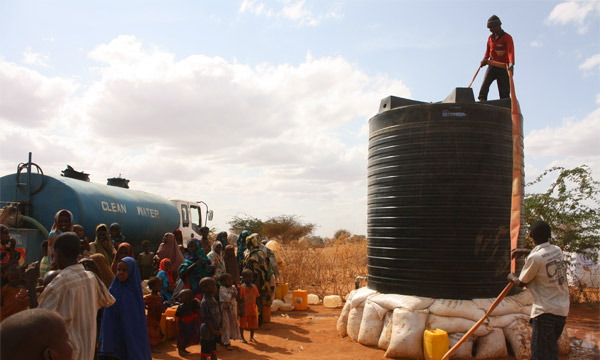A good job unfinished? How deficient infrastructure leads to ill-health through contaminated water in informal urban communities in Africa

Supervisors
- Dr Manoj Roy (LEC)
- Professor Roger Pickup (BLS)
- Dr Luigi Sedda (LMS)
- Dr Francis Boateng Agyenim (Council for Scientific and Industrial Research, Ghana)
Description
The last two decades have seen much improvement to a potable water supply to millions of poor urban people across the developing world. However, potential benefits of improved water supply are severely compromised by sewage contamination at a critical zone around the final point of use – where water is taken from the standpipe to the home. With no sewerage systems, informal communities rely on toilets draining into poorly built pits or septic tanks. The settlements are commonly located on low-lying and poorly drained lands, and the dwellers often lack awareness of and provisions for safe handling and disposal of human waste – resulting in leakage of faecal material into local environments. Through various pathways (e.g. dirty buckets, unwashed hands, insect and rodent vectors) potable water and food is contaminated, causing ill-health. In short, urban, national and increasingly global architectures for sustainable development continue to fail, with severe consequences for public health. The challenge of this PhD is to explore how to transform infrastructure and practice within communities, leading to measurable improvements in the ‘quality of life’ for poor urban people. To achieve this, empirical research will be carried out in informal settlements in Accra, Ghana under the umbrella of the RECIRCULATE project under the heading of ‘Water for Sanitation and Health’. This is concerned with the extent and consequence of, and strategies to reduce, leakage of faecal material into local environments and ultimately into people’s drinking water. The findings will inform and transform both practice and policy and improve human health of poor urban people across Africa.
The PhD project comprises the following integrated components to investigate the hypothesis that a concerted, sustainable set of community-based water and sanitation interventions will progressively improve the health outcomes in informal settlements in Accra, Ghana:
- A city-wide assessment of potential benefits of community WASH interventions (WASH is short of water, sanitation and hygiene) – involving modelling based on empirical data from selected settlements;
- An epidemiological assessment of diarrhoeal diseases in informal settlements;
- Role of faecal waste in co-morbidity (including vector-borne disease) in informal settlements and potential benefits from WASH Vaccine idea [defined as a concerted and sustainable set of actions to prevent faecal contamination within informal communities that could ultimately save millions of lives]; and
- How to transfer WASH Vaccine idea to people most effectively – through innovative public education.
The project has now recruited.
